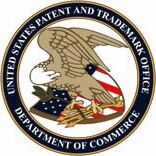Our Long National Patent Nightmare is Over? Tafas v. Kappos and the New Patent Administrative State
 The citizenry of the United States awoke to shocking news this morning . . . the United States Patent and Trademark Office has rescinded its controversial continuation application rules package (what was that about a Nobel Peace Prize?). The link to the press release is here.
The citizenry of the United States awoke to shocking news this morning . . . the United States Patent and Trademark Office has rescinded its controversial continuation application rules package (what was that about a Nobel Peace Prize?). The link to the press release is here.
These controversial rules—which sought to limit the number of continuation applications, a type of patent application that claims priority back to an earlier filed application—had prompted vociferous opposition from the patent community because it would limit strategic choices related to patent prosecution. Indeed, I derived the title of this blog from comments posted today on the Patently-O Blog.
I had long threatened a blog post that advised newly appointed Commissioner Kappos what he should do in response to the issues posed by Tafas. Conveniently, Commissioner Kappos actually undertook the strategy that I would propose—rescinding the rules, filing a motion to dismiss the case, while at same time seeking to vacate the federal district-court decision (a motion joined by one of the plaintiffs, GlaxoSmith Kline). As I have discussed in an article published last year (First Things, First: A Principled Approach to Patent Administrative Law, 42 John Marshall L. Rev. 29 (2008)), the decision of the district court was filled with a number of mistaken premises about the nature of substantive notice-and-comment rulemaking in the patent administrative state.

 On Friday, the district court in UMG v. Veoh granted summary judgement in favor of Veoh.
On Friday, the district court in UMG v. Veoh granted summary judgement in favor of Veoh.  This blog has seen an extended discussion on the topic of literary characters and copyright law. It began with my post
This blog has seen an extended discussion on the topic of literary characters and copyright law. It began with my post